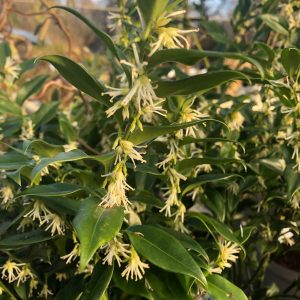Baby Range (9cm), Evergreen Shrubs, Fragrant Shrubs, Hedging plants, Shrub
Prunus lusitanica
£9.99
Portugal Laurel

A dense bushy shrub with glossy dark green leaves and fragrant white flowers on pendent racemes in early summer. Followed by red fruit ripening to black. It is a superb topiary subject, or hedging plant, and has been regularly planted in parks as a specimen tree.
SKU: PRUNUS-LT
Categories: Baby Range (9cm), Evergreen Shrubs, Fragrant Shrubs, Hedging plants, Shrub
Tags: Evergreen, Evergreen tree, Hedging plant, Portugal laurel, specimen, topiary
Related products
-
Rated 0 out of 5
Sarcococca confusa
£9.99 – £14.99 Select options This product has multiple variants. The options may be chosen on the product page -
Rated 0 out of 5
Ilex aquifolium JC Van Tol
£14.99 Select options This product has multiple variants. The options may be chosen on the product page -
Rated 0 out of 5
Pyracantha Orange Glow
£11.99 Select options This product has multiple variants. The options may be chosen on the product page






